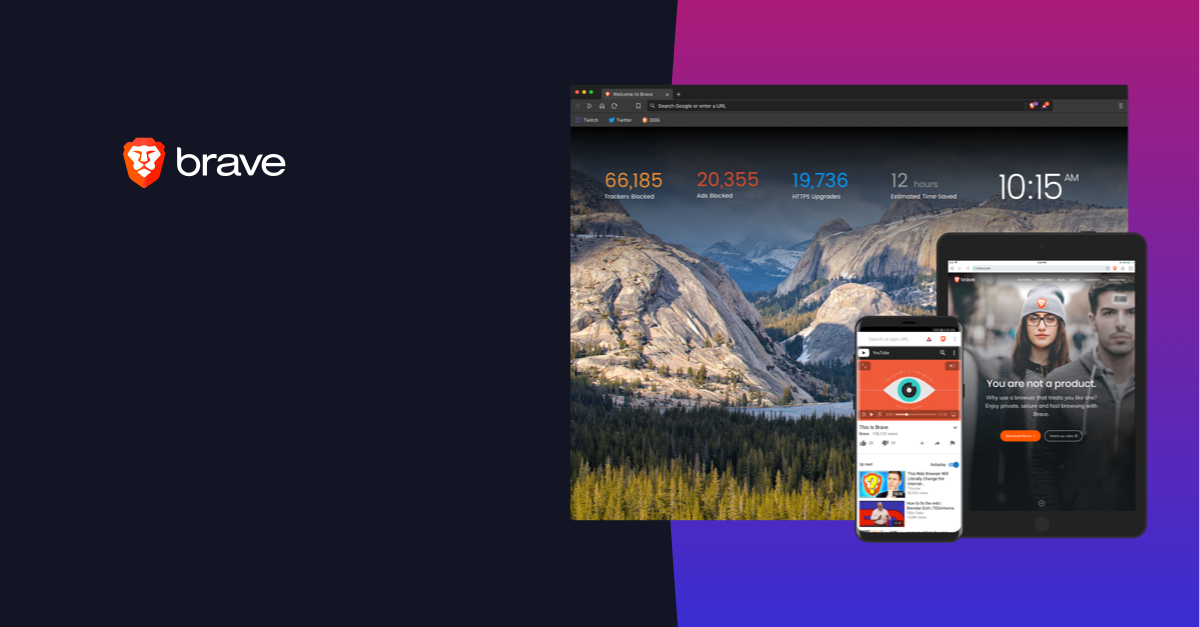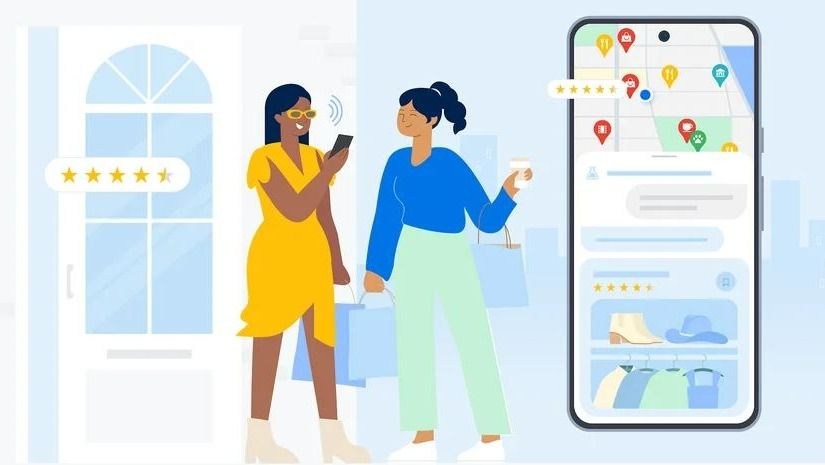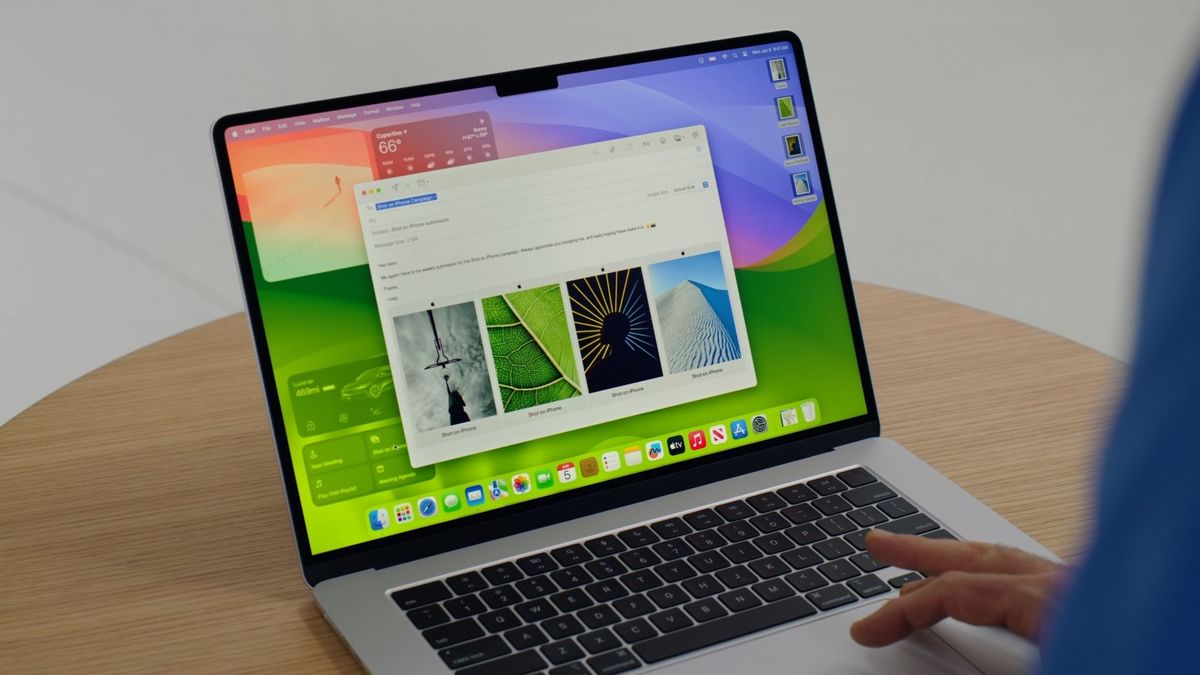Brave may not be the most well-known web browser out there, but it's certainly making waves in a sphere dominated by the data-hungry Google Chrome. In fact, the browser recently revealed that it saw a record number of new users in May, which begs the question: why?
The most open answer is that the browser bills itself as an open source, privacy-first service and isn't interested in gobbling up your personal information for profit. It also comes with built-in ad blocking and malware protection tools and can be used completely free of charge.
However, some people still have reservations, as Brave is built on the Chromium Web core and recent issues linger in the minds of any security-conscious consumer. So, I decided to see for myself and find out if the increase in Brave users is a sign of things to come or a happy coincidence.
What is Brave?
Simply put, Brave is a web browser, like Google Chrome or Microsoft Edge, that you can download for your desktop, Android, or iOS device. It's free to use, which is always nice to hear, and the accompanying Brave search engine is an added cherry on top.
Brave differentiates itself by prioritizing user privacy and not trying to trick you with pre-configured settings designed to capture as much data as possible from your browsing sessions. After all, it's a valuable currency for advertisers and other unreliable third parties, as they use it to develop detailed profiles about your habits and the things you've shown interest in buying, and then tailor targeted ads based on what they learn. It's invasive, to say the least.
Brave's best (and most useful) privacy tools are enabled by default, like its ad blocker, which is a big plus in my opinion since most of us don't regularly dig into our browser settings.
You will also be protected from fingerprinting, phishing scams, malware attacks, and other digital threats. Plus, Brave has some cool extras, like support for free video calls and offline playlists, and a customizable news feed, all of which make it feel like more than just a branded landing page.
keeping account
The Brave browser keeps track of how many ads you block over the course of your browsing sessions, and some of the numbers I've seen users report on Reddit are huge: sometimes over a million ads blocked.
If you really want to boost your online privacy, Brave's forgetful browsing mode is worth checking out. It automatically deletes cookies every time you leave a site, so you won't stay logged in, preventing you from being recognized if you open them again. I was happy to see that Brave also implemented the Off The Record (OTR) feature, which allows users to hide their browsing traffic from others using the same device, an invaluable help for victims of domestic abuse.
Finally, there is Brave VPN. However, you will need to shell out for a subscription to get the most out of it and it will cost you $9.99 per month. In exchange, your web traffic, the sites you visit, and anything else you do will be kept hidden from prying snoops (including your ISP, your workplace, and your government).
While having a VPN built right into the browser is undeniably useful, it has its limitations; For one thing, Brave VPN only supports 5 simultaneous connections and offers servers in 13 countries. This isn't as generous an offer as you'll find with the best VPNs out there, but you can sweeten the deal by making good use of Brave VPN's 7-day free trial.
Can Brave get braver?
The Brave browser is packed with features but, like most software, it has its drawbacks. The ad blocking tool is a bit hit and miss when it comes to YouTube, for example, and Reddit users have experienced random switching between light and dark mode.
There's also the fact that Brave came under fire in October last year for installing its VPN without the user's express permission. Naturally, that's not the best look for a privacy-oriented browser, but the problem has now been fixed. Brave's privacy policy also does a solid job of outlining its stance on data logging, namely that it's simply not interested in collecting any.
It states:
“Our company does not store any records of people's browsing history. We do not write any personal data to the blockchain. The only way Brave stores a user's data is if the user has activated Rewards or Sync.”
The only caveat here is that anyone who signs up for the Brave rewards program will also opt-in to data collection, but that's a given since that's how users accumulate and redeem points.
Final thoughts
IMHO, the Brave browser is a great alternative to today's most popular (but data-intensive) services. It's not a perfect product, as the ad blocker sometimes forgets to do its job, but the fact that it automatically sets users up for success and increases security is a big help. You can check out their additional tools if you want, although Brave VPN is a bit pricey.
Note that Brave is free to use and open source, and will have a browser that will work for privacy purists looking to escape the clutches of big tech and casual users interested in putting an end to annoying ads, trackers and malware. .









